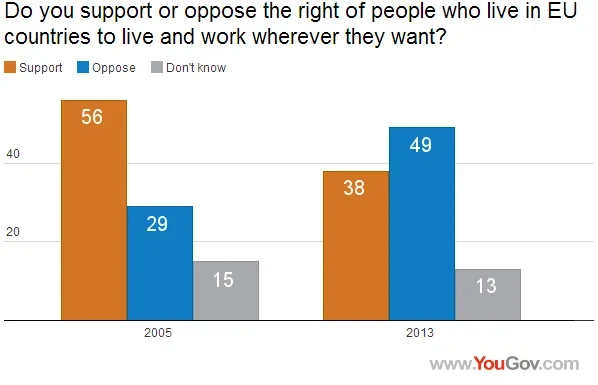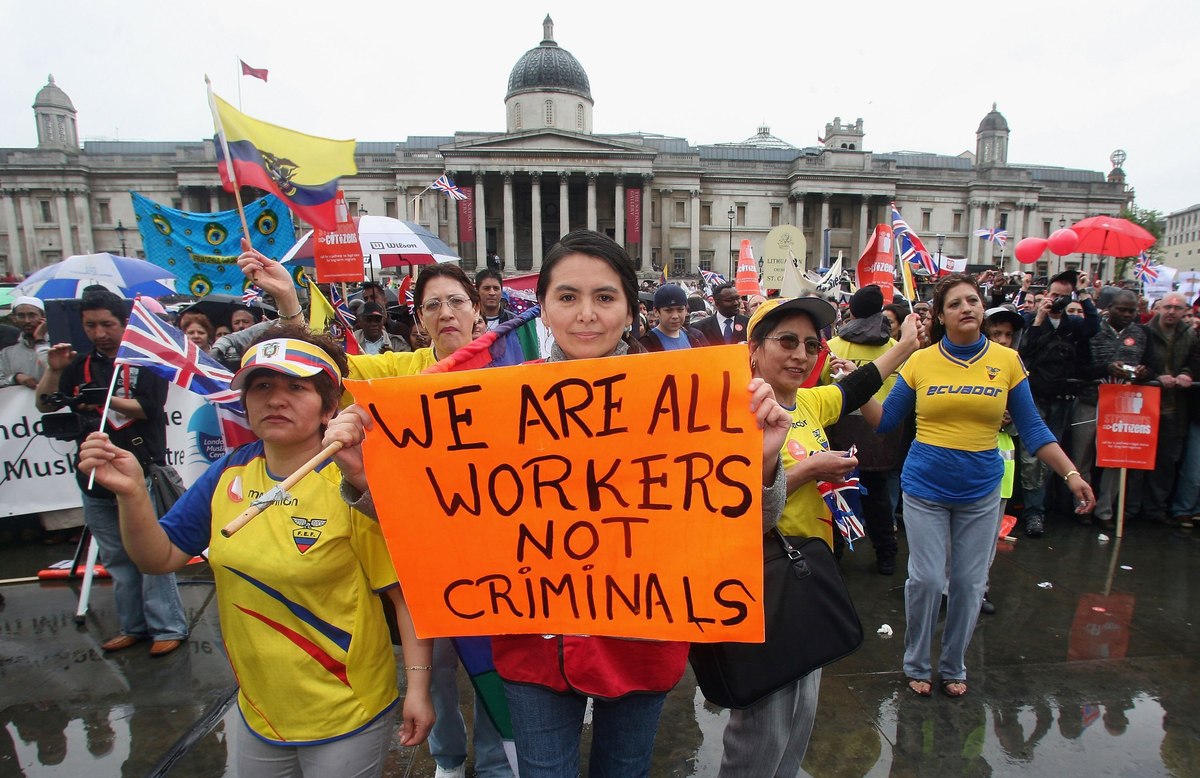In the past many people have had nuanced views on immigration. YouGov’s latest survey for Prospect finds a sharp change.
Immigration has always been a contentious issue. However, in the past, many people have combined dislike of the scale of immigration with a recognition that they help Britain’s economy and keep vital public services going. YouGov’s latest survey for Prospect repeated some questions we asked eight years ago. Hostility to immigration is up and the belief in its beneficial effects is down.
The sharpest change concerns the NHS. In 2005, Britons agreed by four-to-one that service would collapse if it couldn’t recruit nurses from abroad. Today, the proportion saying this is true is down from 73% to 50%, while the proportion disagreeing has doubled from 17% to 36%.
The other seismic change concerns attitudes to the European Union. In 2005, we supported by two-to-one “the right of people in EU countries to live and work wherever they want”. Today we oppose free movement by 49-38%.

Want to receive Peter Kellner's commentaries by email? Subscribe here
How come? Answers to our next question help to explain what has happened. We asked people whether immigrants from each of seven different parts of the world have had a positive or negative impact on Britain overall. Some of the results are unsurprising. For example, few of us think ill of those who have settled here from Australia or the US. People from India score relatively well, while immigrants from the West Indies attract mixed reviews and those from Nigeria are widely seen in a poor light.
The really striking thing is the contrast between Poland and Romania. By 38-29% we think Poles have had a positive effect on Britain; but when we think about Romanians coming to live here, the verdict is very different: just 15% say positive, while as many as 48% say negative. With restrictions on people from Romania and Bulgaria about to be lifted, those in politics and beyond who favour free movement will have their work cut out to persuade voters that it is a boon and not a curse. They will be hoping fervently that some of the predictions of mass arrivals from the two countries do not come true.
The biggest specific fears that need addressing are that immigrants have too ready access to welfare benefits, council housing and jobs that they are thought to get by undercutting British-born workers.
The poll offers two straws of comfort for voters who dislike the views of the majority. There has been no rise in the numbers – one-third of all adults – who dislike the thought of an immigrant family moving in next door. And most people still say that immigration is either a small problem or no problem in the area where they live. But even here, opinion is on the move, with the proportion saying it IS a big problem locally up from 25% to 37% since 2005.
See the full YouGov / Prospect Survey Results
This commentary appears in the current issue of Prospect
Want to receive Peter Kellner's commentaries by email? Subscribe here










